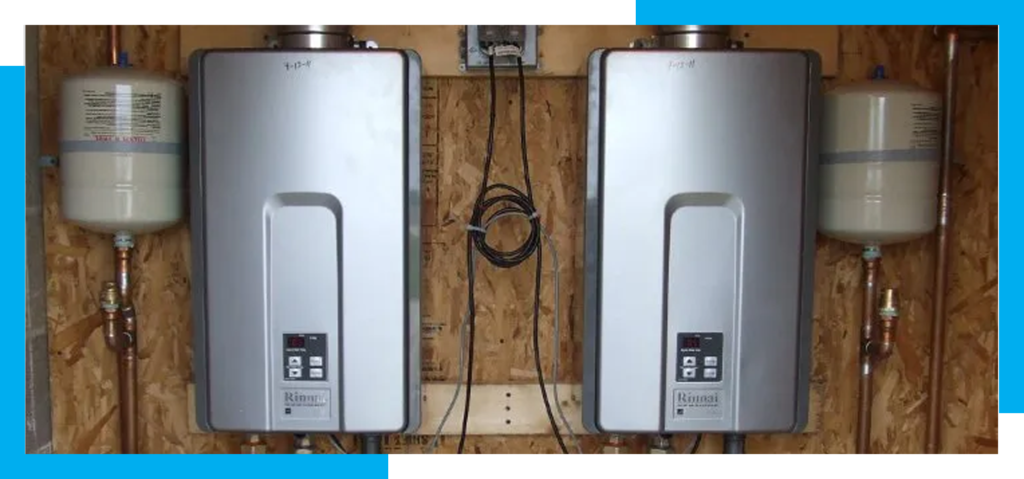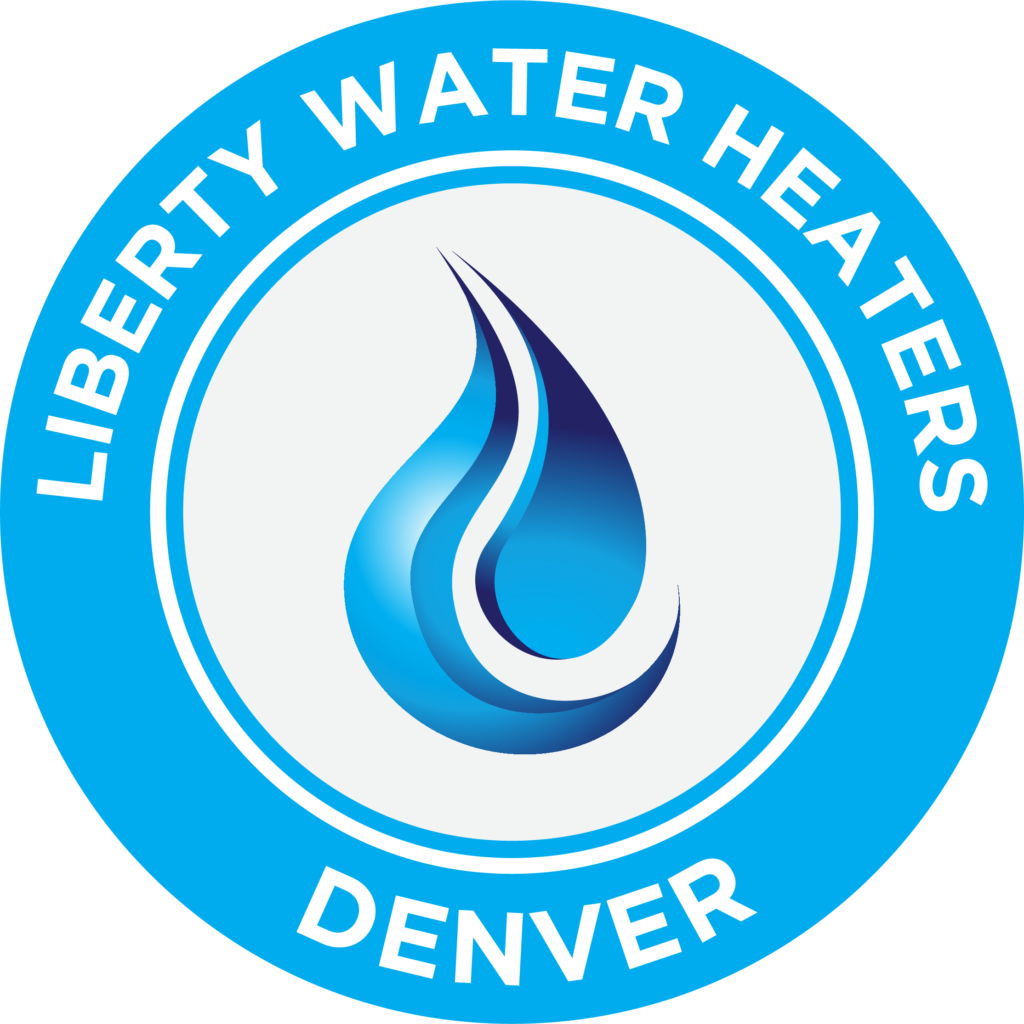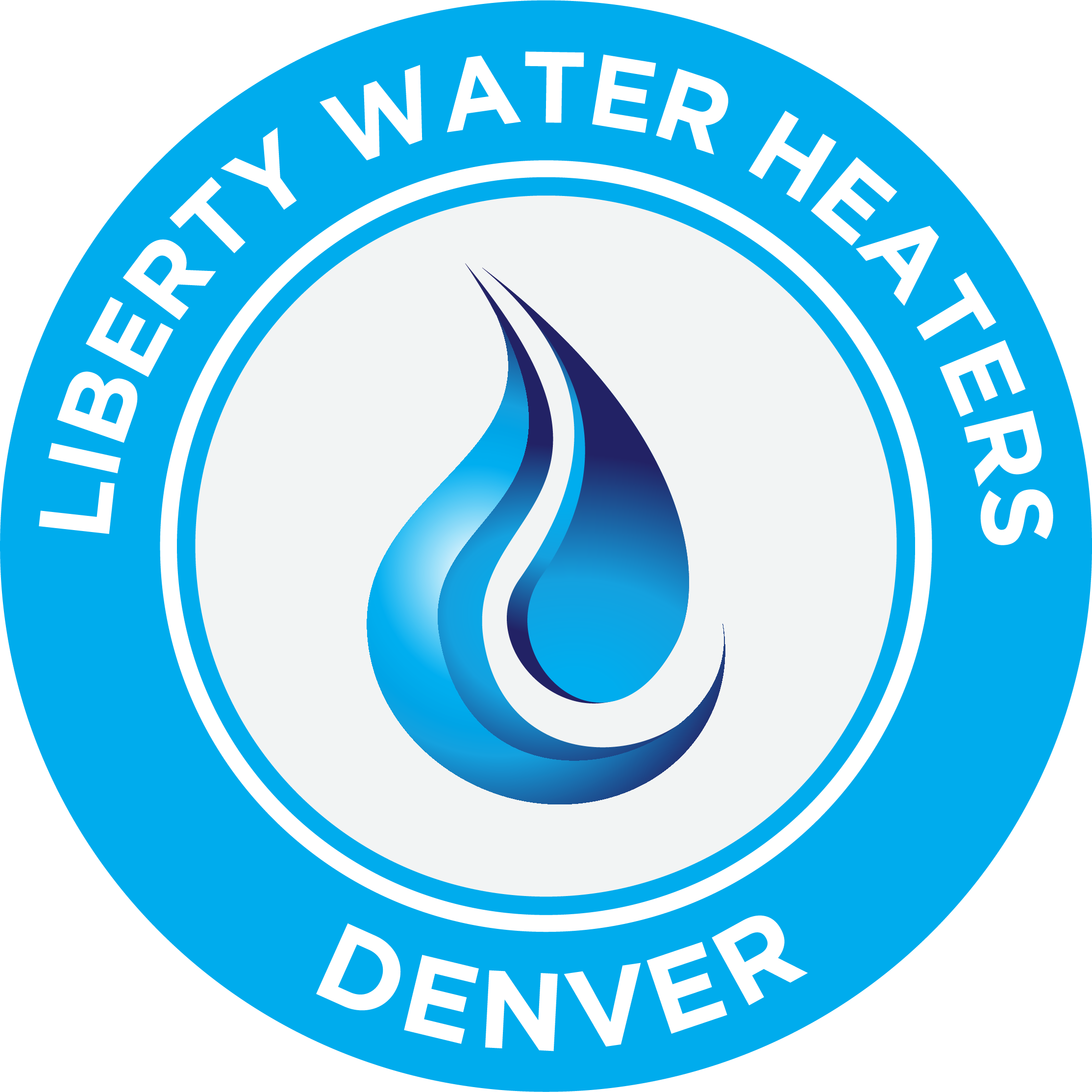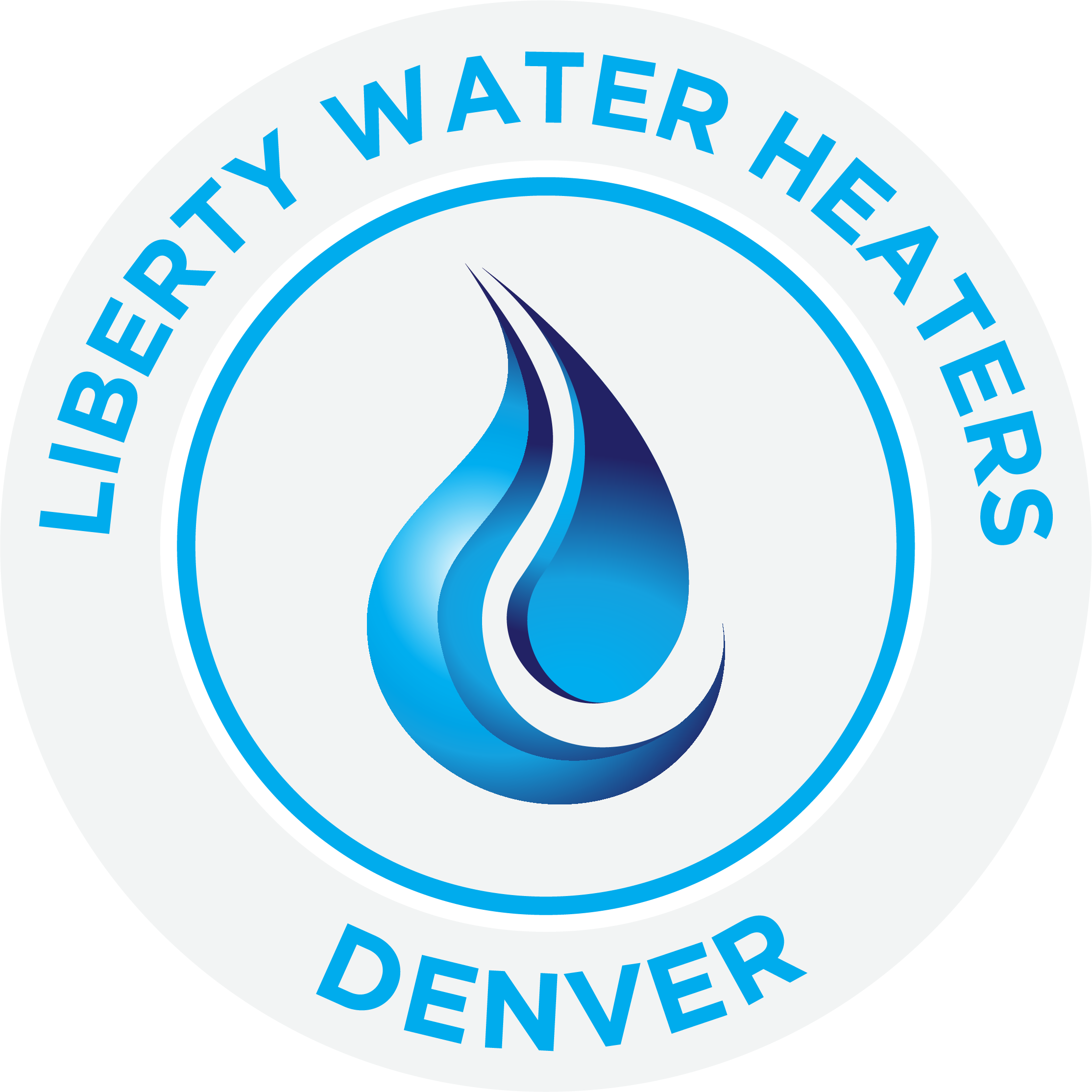Tankless Water Heater Installation Denver, CO
Liberty Water Heaters Denver installs tankless water heaters in Denver, Colorado. Commonly called ‘on-demand’ or ‘instantaneous’ water heaters, these types of units are the energy-efficient alternative to conventional water heaters. This unit is more energy efficient because of the reduced use of water and energy to maintain the water’s temperature. Tankless units supply hot water precisely when required, negating the purpose of having the storage tank.

Request Your Estimate

Request Your Estimate

Request Your Estimate
Tankless Water Heater Installation Denver, CO
Tankless Water Heater Installation Denver, CO
Liberty Water Heaters Denver installs tankless water heaters in Denver, Colorado. Commonly called ‘on-demand’ or ‘instantaneous’ water heaters, these types of units are the energy-efficient alternative to conventional water heaters. This unit is more energy efficient because of the reduced use of water and energy to maintain the water’s temperature. Tankless units supply hot water precisely when required, negating the purpose of having the storage tank.
Our company will help you find the right model from a dependable brand for your specific needs. Then we will deliver and install your new tankless water heater unit.
Tankless Water Heater Repair Denver
Liberty Water Heaters Denver also provides maintenance and repair services in Denver for your tankless water heater unit. If you suspect an issue just give us a call and we will come take a look. Tankless water heaters typically are more complex units, meaning they have more components than conventional units possess. Malfunctions will eventually happen with any unit after enough use. If you are experiencing issues with your water heater, call us. We’ll be there in a jiffy to fix the problem swiftly.
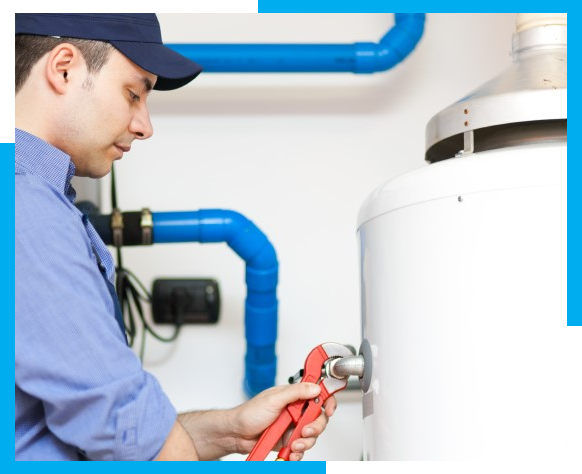

Tankless Water Heater Repair Denver
Tankless Water Heater Repair Denver
Liberty Water Heaters Denver also provides maintenance and repair services in Denver for your tankless water heater unit. If you suspect an issue just give us a call and we will come take a look. Tankless water heaters typically are more complex units, meaning they have more components than conventional units possess. Malfunctions will eventually happen with any unit after enough use. If you are experiencing issues with your water heater, call us. We’ll be there in a jiffy to fix the problem swiftly.
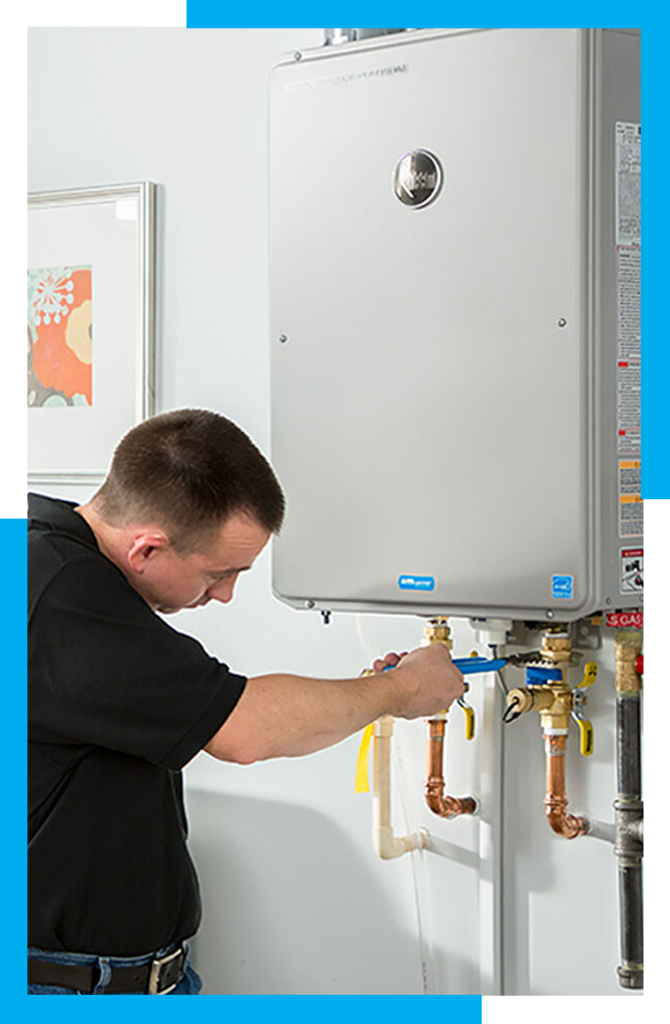
Cost of Tankless Water Heaters
Cost of Tankless Water Heaters
The pricing of tankless water heaters is influenced by various elements, including the brand, capacity, features, and installation duration. Smaller units with basic functionalities and lower flow rates typically fall on the more economical side, while larger, high-capacity models incorporating advanced technology tend to command a higher price. Moreover, energy-efficient units offering enhanced warranties may be positioned at a premium in the market. On average, one can anticipate investing approximately $1,500 for the most sought-after tankless water heaters, reflecting a balance between performance and cost.
Electric Tankless Water Heaters
Utilizing electrical resistance heating components, these systems heat water during its passage through the unit. When you open a hot water tap, frigid water from the supply line enters via the cold water inlet pipe. A flow sensor discerns the water flow rate, prompting the activation of the heating elements. Once water flow ceases, the heating element promptly deactivates, ensuring it isn’t continuously operational to maintain hot water. Composed of materials such as copper or stainless steel, the electrical resistance heating elements heat up as electricity courses through them. As the water traverses these elements, it undergoes rapid heating, achieving the desired temperature almost instantaneously. The now-warmed water exits through the hot water outlet, making its way to your faucet or appliance.
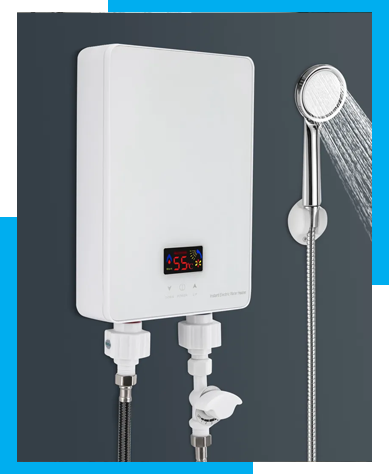

Electric Tankless Water Heaters
Electric Tankless Water Heaters
Utilizing electrical resistance heating components, these systems heat water during its passage through the unit. When you open a hot water tap, frigid water from the supply line enters via the cold water inlet pipe. A flow sensor discerns the water flow rate, prompting the activation of the heating elements. Once water flow ceases, the heating element promptly deactivates, ensuring it isn’t continuously operational to maintain hot water. Composed of materials such as copper or stainless steel, the electrical resistance heating elements heat up as electricity courses through them. As the water traverses these elements, it undergoes rapid heating, achieving the desired temperature almost instantaneously. The now-warmed water exits through the hot water outlet, making its way to your faucet or appliance.
Pros of Electric Tankless Water Heaters
Best for low to moderate hot water demands.
Fits in smaller spaces.
Easy installation.
High efficiency.
Cons of Electric Tankless Water Heaters
Limited amount of hot water output
May require an electrical upgrade for high-demand applications.
Gas Tankless Water Heaters
Utilizing a gas burner for on-demand water heating, these systems are offered in both natural gas and propane variants. Ideal for households relying on gas for water heating, tankless water heaters generally outperform their electric counterparts in terms of output.
Upon opening a hot water tap, cold water enters the unit through the inlet pipe. A flow sensor detects the water flow rate, triggering the ignition of the gas burner. Fueled by natural gas or propane, the burner heats a heat exchanger. Water circulates through this exchanger, absorbing heat from the gas flame and rapidly reaching elevated temperatures. The now-heated water exits through the hot water outlet, ready to be delivered to your faucet or appliance.
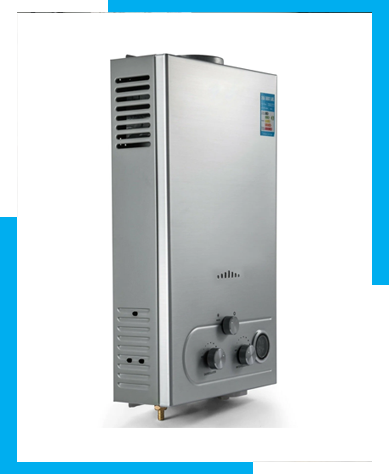

Gas Tankless Water Heaters
Gas Tankless Water Heaters
Utilizing a gas burner for on-demand water heating, these systems are offered in both natural gas and propane variants. Ideal for households relying on gas for water heating, tankless water heaters generally outperform their electric counterparts in terms of output.
Upon opening a hot water tap, cold water enters the unit through the inlet pipe. A flow sensor detects the water flow rate, triggering the ignition of the gas burner. Fueled by natural gas or propane, the burner heats a heat exchanger. Water circulates through this exchanger, absorbing heat from the gas flame and rapidly reaching elevated temperatures. The now-heated water exits through the hot water outlet, ready to be delivered to your faucet or appliance.
Pros of Gas Tankless Water Heaters
High hot water output, suitable for larger households and high-demand applications.
Efficient heating, often more energy-efficient than electric models for large households.
Continuous hot water supply.
Cons of Gas Tankless Water Heaters
Requires proper venting and gas connections, which can add to installation costs.
Larger physical size compared to electric models.
Initial purchase cost can be higher than electric models.
Benefits of Tankless Water Heaters
